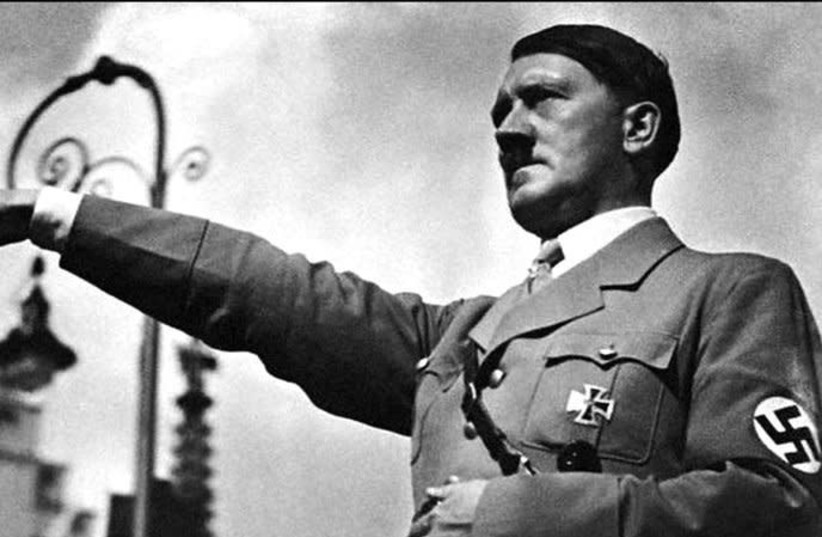How to Win an Information War: The Propagandist Who Outwitted Hitler recalls the black arts of propaganda from World War II. It is also a trumpet blast against the gullibility of today’s audiences brought up in England, told by Peter Pomerantsev, the son of a Kyiv dissident and leading expert on disinformation.
In 1941, a shortwave German-language radio station called Gustav Siegfried Eins went on the air. It opened with the same theme music as the main Nazi news but sounded odd – it was played “on a wonky-sounding piano.” It was then announced that “Der Chef” was about to speak.
Listeners were drenched by a cascade of epithets: “Yankee-swine, stink Japs, Russian-pig Bolsheviks, Italian lemon-faces.” Churchill was “a dirty Jew-loving drunk.”
Der Chef, however, went on to describe the Nazi party as little more than a bunch of opportunists and secret Bolsheviks. Goering and Himmler were attacked for being far too soft on the United Kingdom, while the Luftwaffe was doing nothing to protect the German people.
Who was the mysterious Der Chef?
The army was praised, but the SS was accused of having taken over monasteries for debauchery and orgies. Many listeners believed much of this because of the highly specific information divulged. They concluded that the radio station must be broadcasting from within Germany and was the work of disaffected insiders.

As the station became increasingly popular, the brother of the future queen mother was sent to Washington to assure then-president Franklin D. Roosevelt that it was not the work of a secret anti-Nazi resistance group but a covert British operation run by the Political Warfare Executive and recorded in the billiards room of an English country house in Bedfordshire.
All this was the handiwork of journalist Sefton Delmer, ably assisted by German Jewish refugees who had written the script and acted it out on air. Jews played antisemites and Nazis.
Delmer was born in Berlin. The son of an Australian professor of English literature who taught in one of the city’s universities, Delmer spoke fluent, accent-less German. He felt at home in that country until one day, upon the outbreak of World War I, his school chums and teachers turned on him as “Der Englander.”
After graduating from school in England, Delmer moved back to Berlin as the correspondent for the Daily Express, a major British newspaper. He first heard Adolf Hitler – whom he regarded as “a crackpot” – speak in February 1929, arguing that Germans should not eat oranges, which were imported, but only homegrown fruit.
Delmer soon began to cultivate the Stormtrooper leader, Ernst Rohm, who in turn wanted to convey a positive image of Germany to the British public. He was happy to invite Delmer to a transvestite bar where one of his leading officers was performing.
Delmer used Rohm to get to Hitler and became the only non-Nazi journalist asked to accompany Hitler during the April 1932 election campaign, flying from one town to the next. When Rohm was butchered by Hitler’s men in 1934 during the Night of the Long Knives, Goebbels, “the venomous dwarf,” refused to publicize the names of the dead. Delmer did so instead – and was expelled from Germany.
REGARDED WITH suspicion by British Intelligence when World War II broke out in 1939, Delmer was asked to speak on the German service of the BBC, and quickly understood that its wartime approach was inept. He argued that it was better to convince Germans that the war was lost and that they should desert Hitler.
Delmer had no qualms about using the work of Magnus Hirschfeld, the German sexologist who had documented the sadomasochistic habits of his fellow citizens – and elevated the SS to “a secret society of sexual depravity.” The British Lord Privy Seal, Sir Stafford Cripps, was outraged and protested that “such filth” should not be allowed on the airwaves.
In 1941, the BBC German service attracted one million German listeners at the height of Nazi military prowess. By 1945, it was estimated that between 10-15 million listeners were tuning in.
During the Battle of Britain in 1940, the Nazis, for their part, had rounded up British prisoners of war to act the part of East End cockneys chatting in a pub, in broadcasts to the UK, calling upon British workers to rise up against their bosses. Only eight British POWs agreed to take part and were given better conditions, as well as cigarettes, alcohol, and a weekly visit to the local brothel. Thousands of POWs refused the Nazi inducement.
The author of How to Win an Information War contends that his book has a contemporary resonance, as millions of people today are sucked into believing falsehoods. He points to the multitudes of Russians who refused to believe the 2022 slaughter at Bucha in Ukraine; how Fox News falsely continued to preach that Donald Trump lost the 2020 US presidential election because the voting machines were rigged; and how the Chinese celebrated the centenary of “the great, glorious, and correct” Communist Party in 2021 amid Xi Jinping’s conveyor-belt speeches.
Pomerantsev is right. His insightful book about the artful deceptions of World War II is definitely one for our times.
- HOW TO WIN AN INFORMATION WAR: THE PROPAGANDIST WHO OUTWITTED HITLER
- By Peter Pomerantsev
- Faber
- 267 pages; $25
